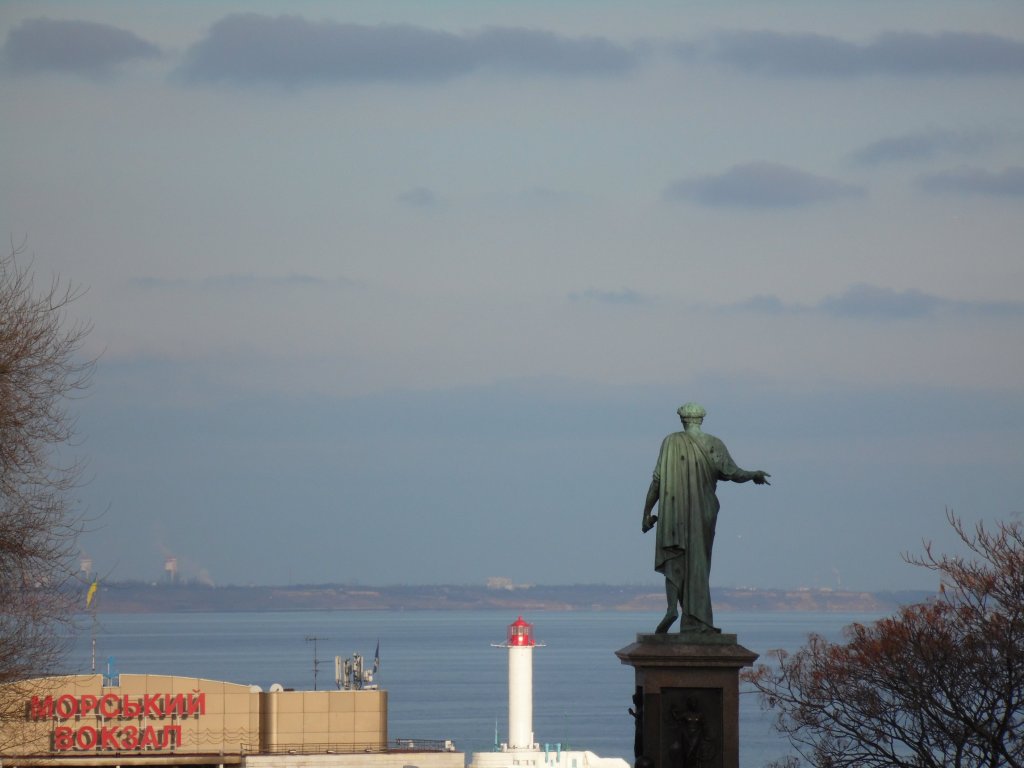
At the start of 2024, the deadlocked European war reached the balance point where Russia was at the peak performance, while Ukraine arrived at the dangerous minimum of its capabilities. Massive budget allocations ensured that Russian defense-industrial complex expanded production to the maximum possible level, while North Korea supplied wagon-loads of artillery shells and Iran delivered hundreds of Shahed-135 drones. On the other side of the equation, Western military and economic aid to Ukraine contracted to a patently insufficient volume, feeding a stream of prophecies on the consequences of another lost war. By the end of January, however, two major shifts in favor of Ukraine had happened, and three more are in the making.
The first one was the French initiative on organizing the “artillery coalition” of 22 states committed to strengthening Ukraine’s tube artillery capabilities and resolving the problem of shortage of 155mm shells. Most of the Soviet-era 152 mm guns in the Ukrainian army have fired their last shot, and it is the US-produced M777 or French-produced CAESAR or Swedish Archer that now constitute the main firepower. Domestic production of ammunition for these guns is yet to be build, and the delays in expanding production lines in Europe have caused an acute “shell hunger”, which the new coalition is resolved to satisfy during 2024.
The second major development was the decision taken unanimously by the European Council on providing the aid package to Ukraine amounting to € 50 billion until 2027. Hungary, which blocked this decision last December, was persuaded to lift its objections, and the vast gap in Ukraine’s 2024 state budget has thus been effectively bridged. Rishi Sunak, the UK Prime Minister, deserves credit for visiting Kyiv before any clarity emerged in Brussels and for confirming the unwavering support to Ukraine. In many European capitals, political atmosphere has visibly changes as the leaders show new determination to overcome the “Ukraine fatigue” and join efforts aimed at countering security threats coming from Russia.
The first among the shifts yet to come is the approval by the Verkhovna Rada (Ukraine’s parliament) the legislation on mobilization, revised by the government after the failure to gain support last December. Ukraine can count on the sustained Western support only if it proves its readiness to resist the Russian aggression not only by President Volodymyr Zelensky’s inspirational statements, for instance at the World Economic Forum at Davos, but also by building up the army, even by resorting to unpopular measures. The Russian army suffers far greater losses in relentless attacks on Ukrainian defenses, but in order to make progress in achieving the strategic goal of liberating the occupied territories, Ukraine needs to train new brigades for the probable summer offensive.
The next development will involve a sequence of steps toward using Russian financial assets frozen in Western institutions and estimated at approximately USD 300 billion for reconstruction of Ukraine’s economy. Arguments for confiscating these assets have been debated for many months, but in the last couple of weeks the practical move for confiscating the profits generated by these assets and estimated at 4.4 billion euro has become an agenda item in the EU decision-making. It may be only a small contribution to the vast costs of war, but the anxiety in Moscow about this punishment betrays deeper worries about the capacity of Russian economy to sustain the pressure of the long war of attrition.
Finally, the long-overdue breakthrough is due to happen in the US Congress, where a strong bipartisan support for providing aid to Ukraine is still blocked by parochial squabbles over technicalities. The idea to put the funding for support programs for Ukraine, Israel and Taiwan as well as the measures for strengthening border control with Mexico in one package was obviously a mistake, and the question now is about how to undo it. The immigration legislation is set to remain a key focus of controversy in the election campaign, but the funding for aid programs to the three states in question is a different issue – and it can be separated and usefully split into particular bits of authorization as the urgency dictates.
Besides these five major shifts, there are multiple smaller additions to the correlation of war forces, and quite a few of those come – remarkably – from Türkiye. The consent to Sweden’s accession to NATO was predictable, even if Moscow had hoped for more delays. More irritating was the finalization of the arrangement for a joint demining operation in the Black Sea implemented by Türkiye, Bulgaria and Romania, particularly as the Russian Black Sea Fleet keeps getting hits and losing ships. What is even more disturbing is the revision of policy by many Turkish banks amounting to closure of most Russian corporate accounts and discontinuation of financial transactions in order to comply fully with the sanctions regime. President Vladimir Putin hopes to sort out the accumulating disagreements during the visit to Türkiye (where he hasn’t set foot in for four years) scheduled still provisionally for mid-February. It doesn’t bode well for his hopes that the two leaders haven’t had a phone conversation since mid-October 2023, departing from their usual habit of frequent talks.
These big and small shifts in the balance of the long war don’t signify a forthcoming victory for Ukraine, but they definitely amount to a disappearance of Russia’s temporary advantage, which hasn’t been translated into any significant gains on the battlefields, hard as Russian troops have tried to push toward Avdiivka or Kreminna. President Putin still radiates confidence that time is on his side, but the tide of war doesn’t follow his wishes – and the combination of Ukrainian resilience and Western support gains new strength. The war of conquest cannot be won on defensive, and sooner or later one of Russian not-so-big battalions will decide that enough is enough, bringing the war to an end with this simple message.

Pavel K. Baev, Dr., Peace Research Institute, Oslo (PRIO)
Dr. Pavel K. Baev is a Research Professor at the Peace Research Institute, Oslo (PRIO). He is also Senior Non-Resident Fellow at the Center for the U.S. and Europe at the Brookings Institution (Washington D.C.), Senior Associate Researcher at the Institut Français des Relations Internationales(IFRI, Paris), and Senior Associate Research Fellow at the Italian Institute for International Political Studies (ISPI, Milan). His research interests include the transformation of the Russian military, the energy and security dimensions of the Russian-European relations, Russia’s Arctic policy, Russia-China partnership, post-Soviet conflict management in the Caucasus and the Caspian Basin, and Russia’s Middle East policy, which is supported by the Norwegian Foreign Ministry. He writes a weekly column in Eurasia Daily Monitor.
To cite this work: Pavel K. Baev, “Five Shifts in the Balance of War in Ukraine’s Favor”, Panorama, Online, 13 February 2024, https://www.uikpanorama.com/blog/2024/02/13/five-shifts/
Copyright@UIKPanorama. All on-line and print rights reserved. Opinions expressed in works published by the Panorama belongs to the authors alone unless otherwise stated, and do not imply endorsement by the IRCT, Global Academy, or the Editors/Editorial Board of Panorama.


